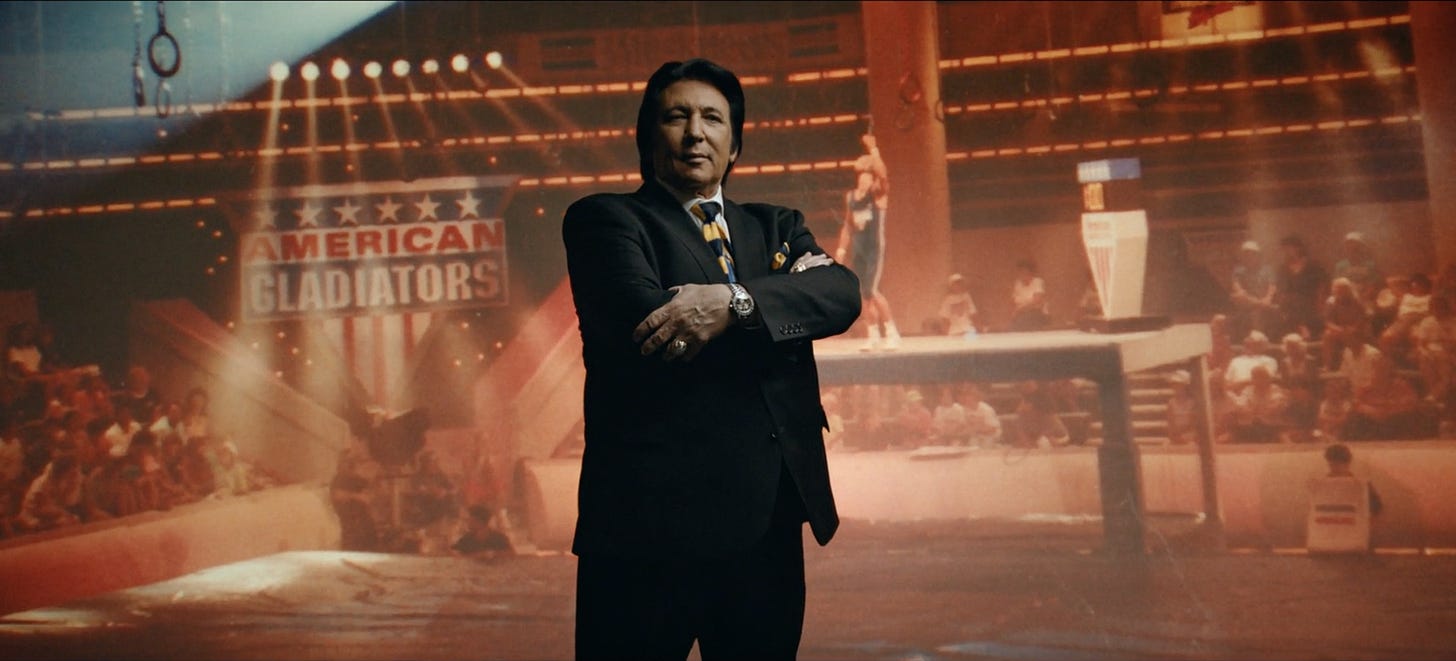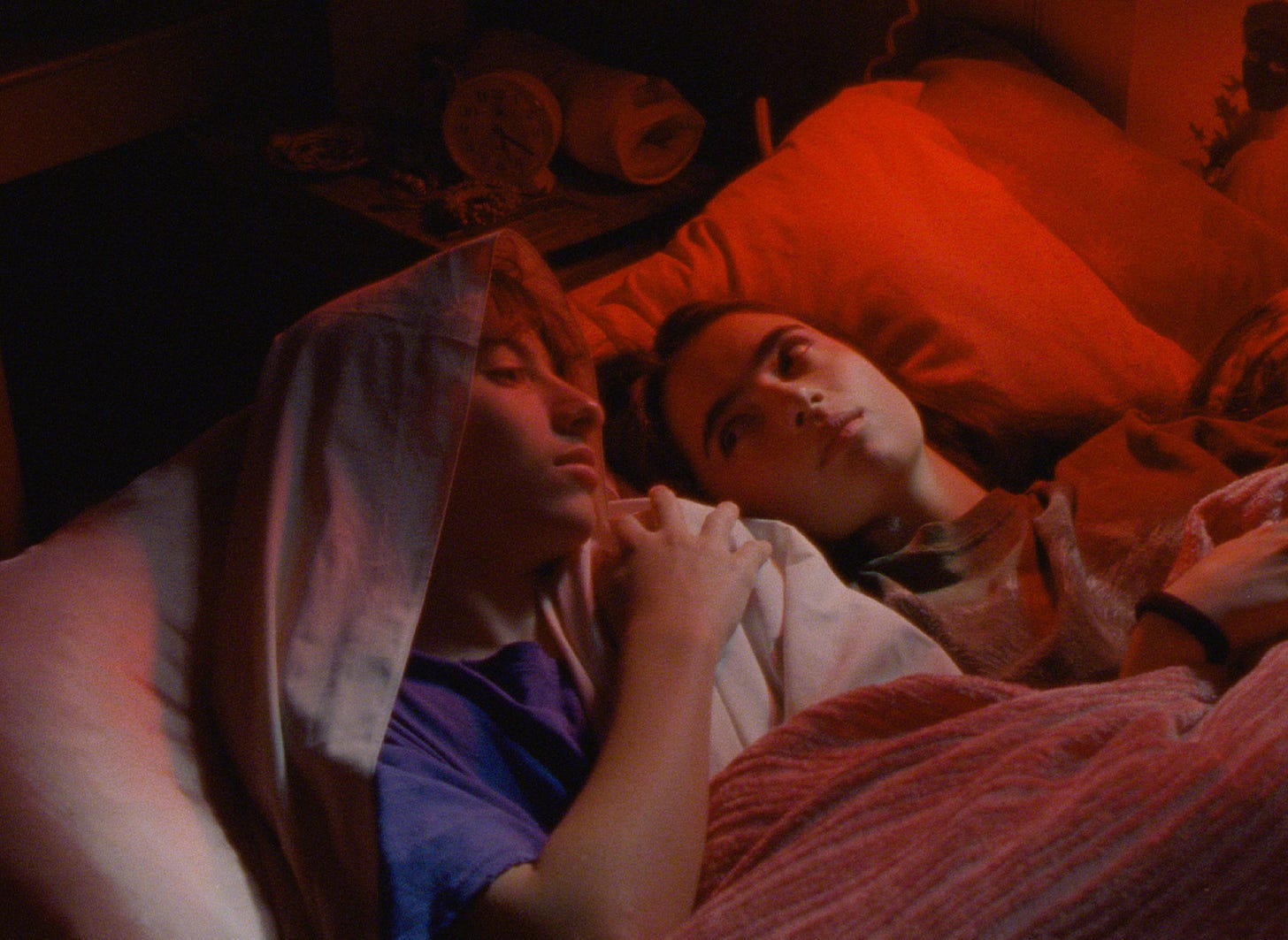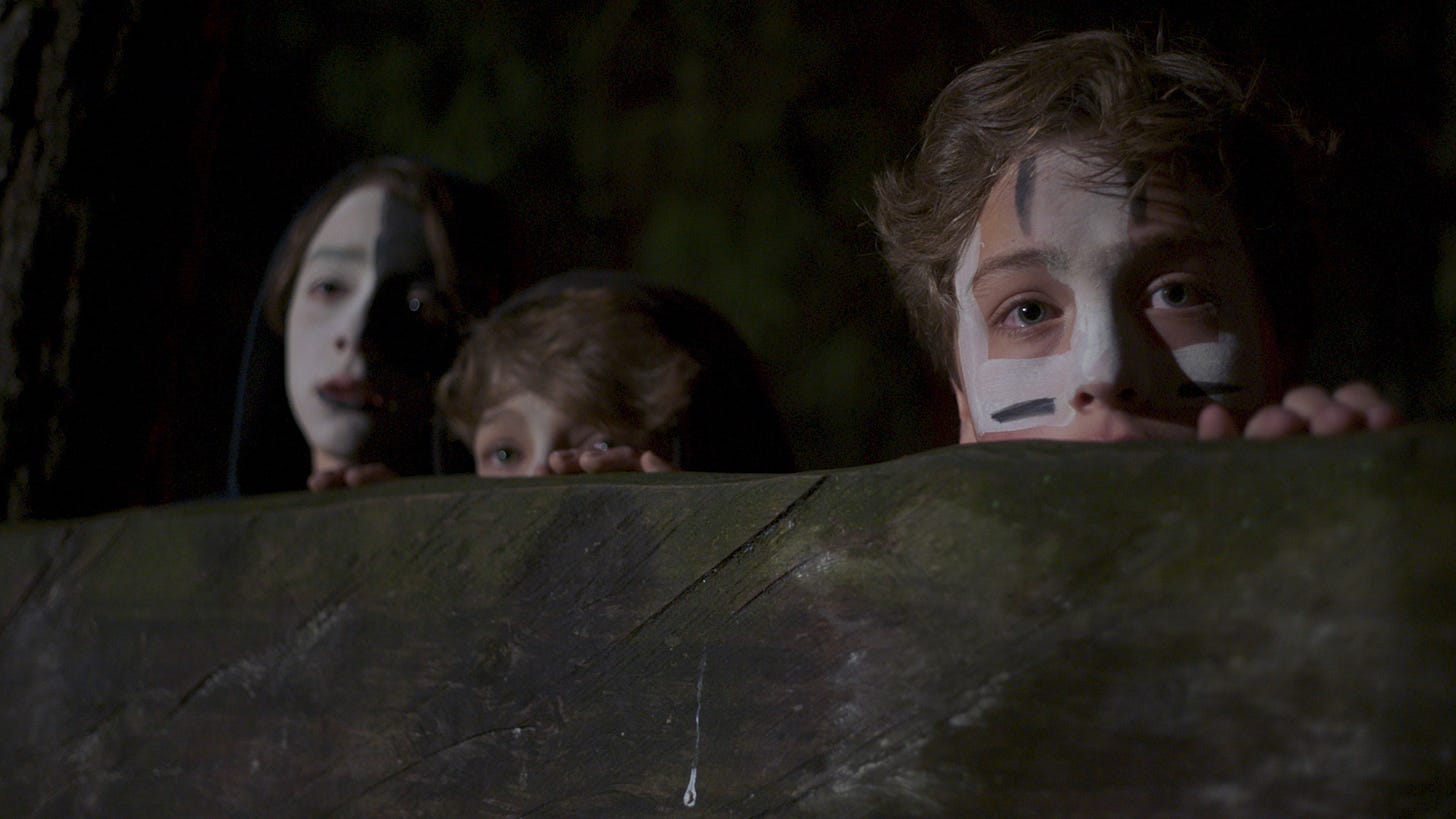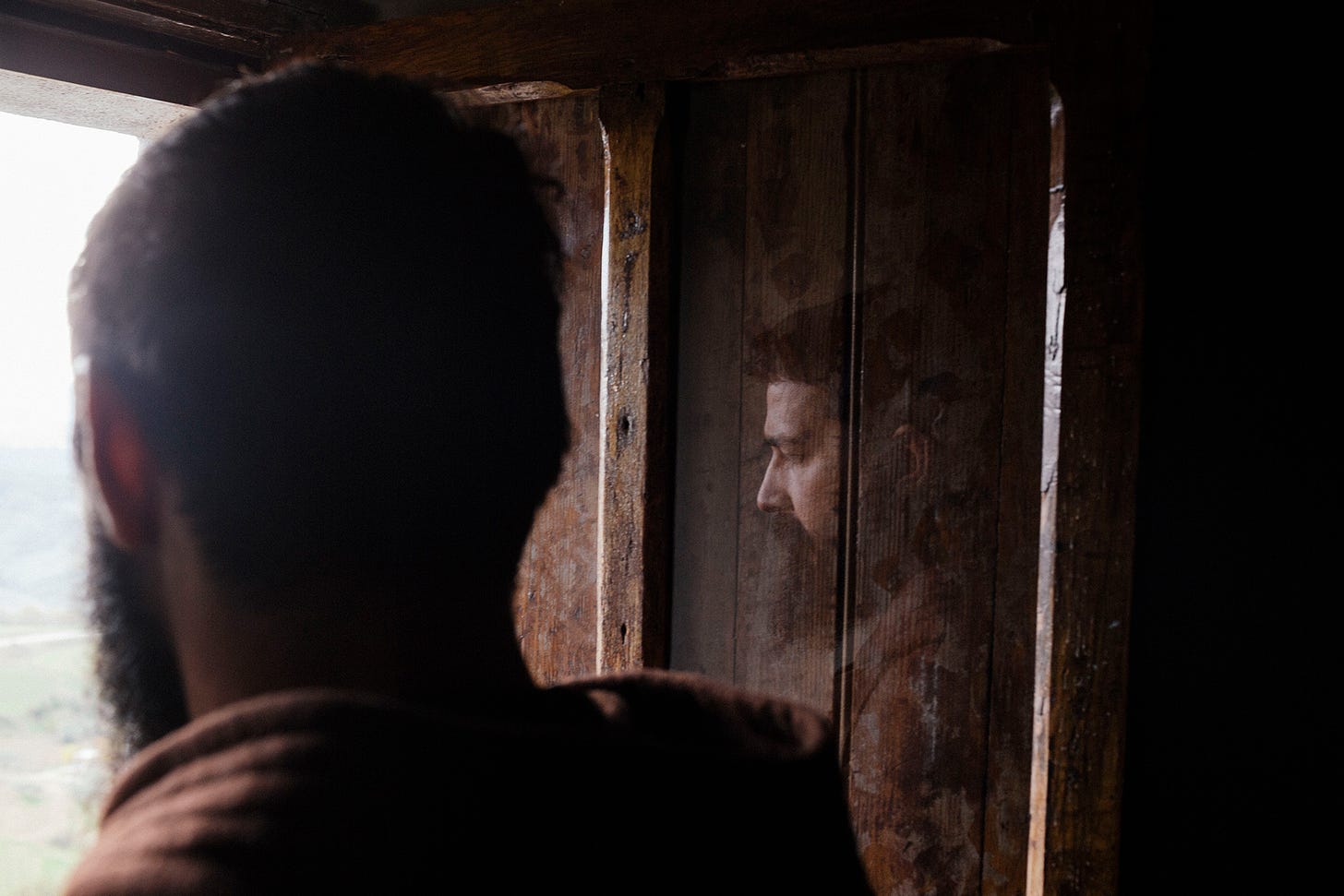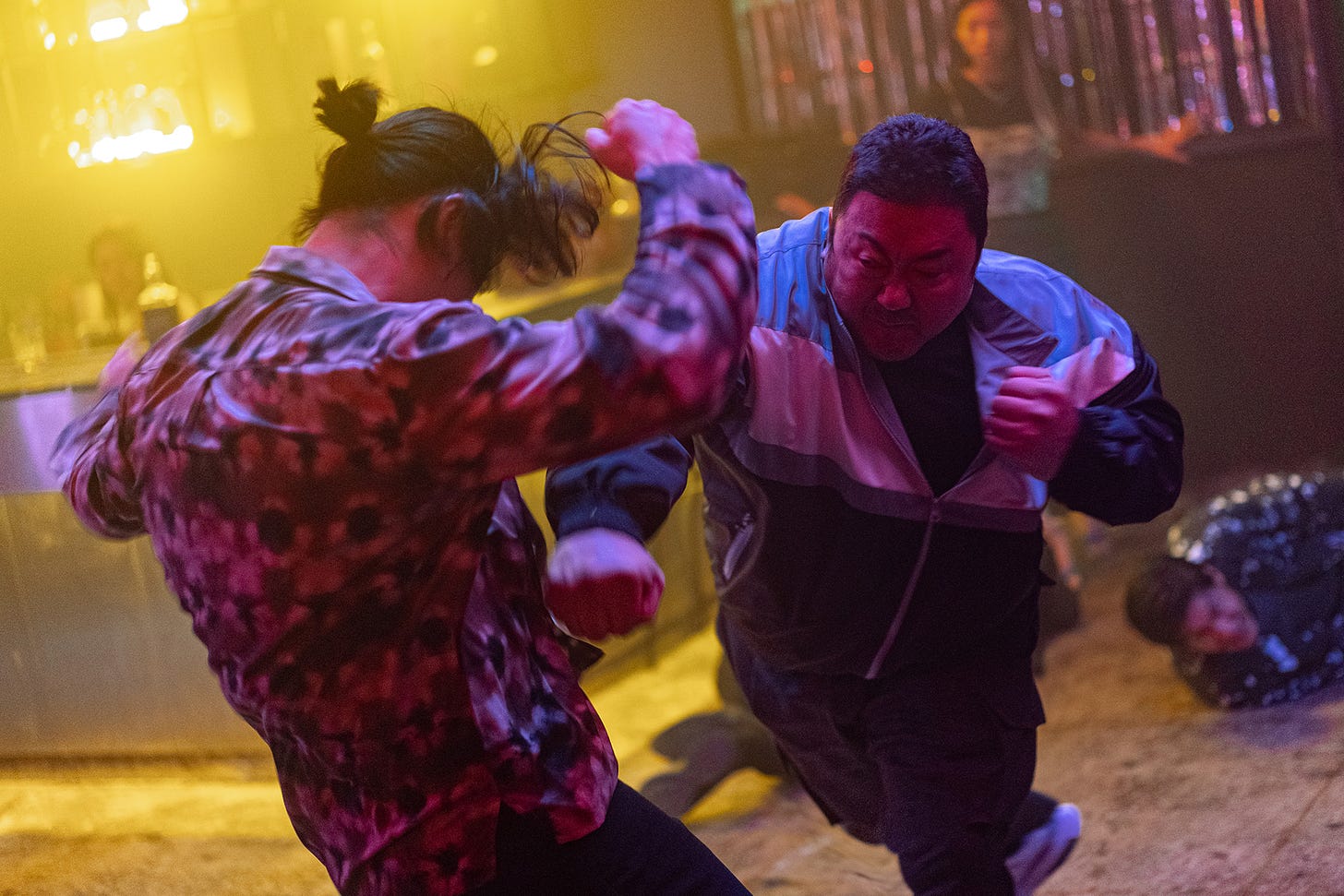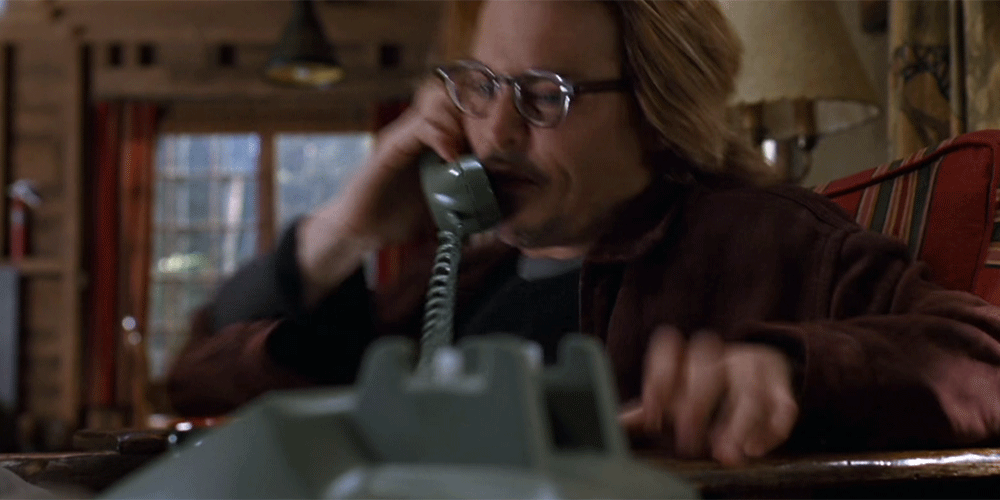Yesterday saw the press registration window open for this year’s Toronto International Film Festival. While it usually felt like a formality in the past, that no longer seems to be the case with the addition of a mandatory submission of two pieces of work and the very clearly stated, “past approval does not guarantee present approval.”
The former used to be voluntary and the latter never quite felt like a threat. So, we’ll see how things shake out. I’ll probably still cover a bunch of indie titles due to existing relationships with publicists, but I do not think I will attend in-person without a pass. Just doesn’t seem worth the COVID risk.
Here’s hoping the decision will be made for me in early July.
What I Watched:
THE AMERICAN GLADIATORS DOCUMENTARY
(streaming on ESPN+)
AMERICAN GLADIATORS was a huge part of my childhood. I would watch it on USA Network every Saturday morning if I woke up early enough (it aired in a block of syndicated shows before WINGS, PARKER LEWIS CAN’T LOSE, and some others). I even had the Tiger Electronics game to play in the car on road trips. There was just something about its David vs. Goliath concept and big personalities that entertained and enthralled. Because I never actually wanted to compete myself. It wasn’t about vicariously placing myself into the shoes of contenders or gladiators. It was simply fun. A spectacle with personality—much like its kid-driven successor GUTS on Nickelodeon. And it was real. The men and women on-screen were taking unbelievable punishment before popping back up with a smile on their faces.
As naive as I was back then cheering them on, however, you can’t think about the show now without knowing those smiles hid much darker truths. The fact its origins came during a writer’s strike. The reality that no human could take the hits these athletes took without doing irreparable damage to their bodies and brains. And that these gladiators couldn’t have been getting paid much. It didn’t matter that they were performing dual roles as participators and showmen. It didn’t matter that they were doing it in an unscripted fashion without the choreography afforded to professional wrestlers. The only consolation would therefore be the exorbitant royalties from having their likenesses on everything from cereal boxes to action figures while also going on tour … except that this was 1989 and the scope of the show’s popularity couldn’t have been anticipated in those terms. So, they unsurprisingly got nothing.
That’s the cold, sobering reality of overnight phenomena like this. The exploitation of their true talent. The revisionist history of their origins. The meticulous and litigious strong-arming of those who believe themselves to be the true subject of their tales, like one-and-only John Ferraro: creator … or co-creator? … or thief?! of the whole thing. Thankfully director Ben Berman (and co-director Kirk Johnson) understand the appeal of such messy background drama, choosing to highlight and exploit it to add an invaluable spark to an already captivating oral account of the highs and lows of everyone involved. He knows it’s not about calling out Nitro (Danny Lee Clark), Ice (Lori Fetrick), and Blaze (Sha-Ri Pendleton) for refusing to participate. It’s about unearthing why they refused. It’s about centering the ill-will that remains with some players and the blatant suppression tactics wielded by the catalyst of that ire. THE AMERICAN GLADIATORS DOCUMENTARY succeeds at bringing everything to light.
To do so, Berman and company must have the stomach to risk alienating their meal ticket: Ferraro. A micromanager constantly interjecting unsolicited ideas that will make him look better and/or give him more control, Ferraro does not come out looking very good when all is said and done. This is a former Elvis impersonator from Erie, PA who’s never not looking for an angle. Meet him on the street and you would assume he’s a con man or a crook. Most “Hollywood” producers are. And when they only have a single meal ticket like AMERICAN GLADIATORS to their name, they find themselves stretching the line as far as it can go to “protect the brand.” Or in layman’s speak, to protect “their cut.” Because that’s how this starts. Ferraro’s involvement is a play. He needs exposure bad enough to concede Berman final cut, but Berman needs his participation to maintain relevance.
The result is a narrative that takes a lot more turns than you may expect once names like Dann Carr and Don Plonski are mentioned. After Part 1 delivers what you assumed (a timeline, anecdotes, and first-hand accounts of the magic and fallout by Michael M. Horton’s Gemini, Lynn 'Red' Williams’ Sabre, fan favorite Wesley “Two Scoops” Berry, the show’s director, games designer, producers, and more), Part 2 becomes more of a fact-finding detective case in search of answers on a growing list of questions and hearsay. Berman documents it all with tongue-in-cheek, using mockumentary trademarks to really drive home how crazy things get once Ferraro labels certain topics taboo. The close-up on John’s face when an Erie native admits he’s never heard of him before then saying he’s definitely heard of Dann Carr (a person John blocked Berman from contacting) is priceless. So, come for the nostalgia and history of those who bled for the show and stay for the ego and spin of its desperate “creator.”
- 8/10
FALCON LAKE
(now in limited release; Digital HD on 6/13)
Writer/director Charlotte Le Bon says it best when describing her film FALCON LAKE with one word: melancholy. She says we must tame melancholy and make it a “friend for life against sadness.” It’s a beautiful sentiment that does well to pinpoint the prevailing mood during the summer tryst between thirteen-year-old Bastien (Joseph Engel) and sixteen-year-old Chloé (Sara Montpetit) that unfolds. He doesn’t want to be there at first—dragged along by his parents to spend the summer with Mom’s old friend. She doesn’t want him there, believing he’s a burden to a carefree and independent lifestyle rivaled only by her hippie, free-spirited mother. Chloé sees something of herself in him, though. A battle between the desire to fit in and stand apart. He’s not like the immature sex-crazed teens she’s surrounded by. At least not outwardly so.
Loosely adapted from Bastien Vivès’ graphic novel UNE SOEUR, Le Bon and collaborator François Choquet gradually reveal a blossoming kinship between the two. Bastien becomes a buffer of sorts for Chloé when out with her older friends in the area, a lifeline away from the burden of expectations. It’s in that role that he flourishes, escaping his shell to impress the group with his dance skills and surprise Chloé with his candor. She opens up to him. She finds a position of control and power to progress at her own pace with Bastien’s excitable yet innocently fearful permission. Is it a romance? Maybe. Is it a dream-like summer of possibility devoid of strings? Perhaps. Neither has an answer nor a need to find one. They give each other their full trust to simply live while jealousy and heartbreak and anticipation come along for the ride.
If you’re anything like me, you’ll soon be scratching your head as to the description of the film being a “love and ghost story” since the latter seems but a red herring of distraction. A ghost story exists on the screen, but it’s one that Chloé shares about a boy drowning in the lake by their cabin. She’s fascinated by the macabre—a fact that quickly puts distance between her and those her age who find it difficult to stop taking themselves too seriously. Her mother says she wants attention. A neighbor teen calls her childish. Bastien just smiles and helps foster the ghoulish fantasy in staged photographs and masochistic games of biting their hands until drawing blood. But we know it’s a lie. We know it’s a mechanism Chloé uses as a litmus test to judge those who want to be close to her. So, don’t get lost in any expectation of horror. This “ghost” isn’t necessarily literal.
You could say the real ghost is love itself. That invigorating sense of inclusion and fullness that can so easily and unexpectedly disappear, haunting those who’ve lost it. Bastien’s parents are the exception: lasting love. Then there’s Chloé’s mom finding herself dating the men she helps buy cabins on the lakeshore and Chloé herself dealing with boys more interested in conquest than romance. Bastien is supposed to be different. His youthful ignorance is supposed to save him from the patterns in which those older than him find themselves lost and/or facilitating. As the film delicately and authentically progresses Bastien and Chloé’s friendship, a new question arises: Is it enough to just be loved or must you ensure the world knows it too? Can he be the person she needs him to be? The person he probably truly is? Or does peer pressure and his own desire to not be alone push him to risk everything for cred?
The result shows how wide the gap is between them. Bastien has only just become a teen and so he’s still finding his place in an ever-expanding world of expectations. Chloé is already there. She knows what she wants and what she doesn’t. She knows how others will try to force her to compromise that decision and the internal fight against the pressure to do so. That’s why her biggest fear is so much deeper than his: to not be alone. Bastien hasn’t yet been hurt or done the hurting to think of a fear worse than mere embarrassment. The tension therefore lies in finding what it is they will do to avoid the loneliness when it inevitably consumes them both and whether each other can be enough. How far will they compromise? How great is the danger they’ll confront to avoid it? Fear often drives us towards actions that end in regret until we become the ones bringing our own ghost stories to life.
- 8/10
THE HOLE IN THE FENCE [El hoyo en la cerca]
(now on VOD)
No matter how vicious you might assume the metaphor for contemporary Mexican society Joaquin del Paso’s THE HOLE IN THE FENCE will get, he and co-writer Lucy Pawlak can always take things further. It’s depiction of young children from wealthy families spending a summer at a religious camp run by strict men who call themselves an “order” deals in both the subtle and overt ways that white supremacy rule our power structures. From the fear-mongering and “other-izing” of native villagers with darker skin than their own European bloodlines (including those “lucky” enough to walk amongst them as “scholarship” tokens of assimilation and subservience like Yubah Ortega’s Eduardo) to the indoctrination by way of God that trains a sense of ownership and permission to protect oneself as an “elite” from those animalistic monsters who would destroy you for sport, Professor Monteros (Enrique Lascurain) and company will do whatever it takes to ensure those in his image remain in control.
The film does a wonderful job at disseminating its gradual reveals. What starts as your usual portrayal of domineering adults and impressionable children acting in their image soon devolves into a cabal of ritualistic lessons that spiral out-of-control. Safety from a malevolent force of violence is soon revealed as purposeful manipulation to teach a warped form of self-sufficiency that rewards the sort of tribalism that sees minorities turning against their own without thinking far enough into the future to understand the mascoting and exploitation that follows. Because people like the graduates from this camp aren’t looking for allies. They’re looking for scapegoats and foot soldiers. The Jordis (Valeria Lamm) of this world don’t offer a hand to the Eduardos at their feet. They offer ultimatums and weapons. Fight for me and I’ll spare you. Kill your brethren in my name and you may enjoy the scraps of my spoils.
Watching Eduardo devolve within the image of these white “elites,” however, isn’t the only commentary on-screen. There’s also Diego (Eric David Walker) trapped in casts with a crutch who’s forever being left behind and forgotten. It doesn’t matter that he looks like them and comes from their socio-economic background. By slowing them down and/or diverting their attention because he needs extra help, he becomes weak and expendable. Not maliciously so. Not intentionally. That’s the insidious nature of white supremacy. Its tenets are baked into its DNA. And it escalates from the involuntary act of leaving one of your own behind to an intentional brutality in his name. These boys aren’t therefore being taught to protect. They’re being taught to destroy. The blindness towards their complicity is therefore a byproduct of their bloodlust for “justice.” The Diegos amongst them are only important through their absence—martyred justifications to murder the innocents they’ve been taught to dehumanize as Satan’s spawn.
It all leads to a rather unforgettable sequence of events wherein fear becomes hijacked and weaponized to uncontrollable lengths. The adults start to separate the strong from the weak. They choose those willing to fight over those who go crying to their parents regardless of what they thought beforehand. A programmed Eduardo is worth more to their cause than a rich wuss because the former would become a dangerous adversary otherwise as the latter simply tries harder to buy his way back in. The artifice of the entire camp subsequently comes into focus as Monteros’ lessons become more target-driven and exacting in their “us versus them” construction. So, when things unfold that make it seem the tables might be turning—that the adults finally have something to fear—ask yourself what it is they’d be most scared about. Is it having to explain a child went missing? Or facing the potential fallout of what that missing child might say upon being found?
- 8/10
PADRE PIO
(now in limited release)
While an effectively confrontational piece of political cinema, I must admit that I have zero clue as to what Abel Ferrara is doing with his latest film PADRE PIO. He and co-writer Maurizio Braucci are telling the tale of a small Italian village shortly after the end of WWI wherein the people have awoken to their own exploitation. This is a problem for those in control of both the land and the military since the country is about to hold its first “free and fair” election. The current mayor (Brando Pacitto’s Renato) seeks reelection with the strong-arming help of Gerardo, a returning general (Marco Leonardi), against a growing socialist party consisting of his laborers. Their story’s progression is straightforward with abuses of power, election interference, and intimidation. And yet it’s not the main narrative thrust. Not when you consider the title.
Because while all this is going on, Pio (Shia LaBeouf) has begun his ministry under a priest who’s sympathetic to the village’s wealthy class. Churches love money, after all. The assumption is therefore that this new arrival might stand-up and side with the people since Pio eventually becomes a Saint, adored by many Catholics. I, being a non-practicing Catholic bordering on Agnostic, however, know nothing of why this is. So, I deduced that he’d have an impact in this election struggle. That this would be some sort of origin story for his veneration—a hypothesis seemingly bolstered by his own suffering at the hands of ghosts haunting him with guilt and temptation. But alas I was incorrect. Pio’s parallel journey on-screen barely touches that of the political revolutionaries. He simply searches for God through tears while they fight for freedom.
Where then is the connection? I see none. Hence my confusion. It’s as though Ferrara has shoved two disparate films together wherein only those who are already keenly aware of the history of both can easily comprehend the overlap. To me one merely distracts from the other. We cut from Pio to Luigi (Vincenzo Crea) and Giovanni (Cristina Chiriac) with little rhyme or reason. Even the climax feels disjointed considering anyone with a brain can guess the election won’t actually be fair (Italy is a fascist state when WWII rolls around) while knowing Pio will probably return to God considering who he becomes. The blood of innocents therefore gets juxtaposed with Pio’s relief. Why? What is Ferrara saying? That some believers find salvation despite the rampant corruption surrounding them?
It’s probably more in line with calling out the hypocrisy of the words Pio speaks to a man who lost both his sons to the war. Pio (LaBeouf is quite good, perhaps using the role to confront his own personal demons) tells an anecdote about embroidery and how we’re often looking at the knots of a canvas from below while it’s still being sewn. Only after seeing the front can we understand the beauty born from that chaos and pain. He tells this man to keep praying. To live so he may see God’s plan. It’s the hollowest of non-answers that Catholics eat up every Sunday—the empty belief in more that demands we ignore what we see with our own eyes. So, the film is Pio recognizing God’s plan despite the nightmare unfolding? Maybe. Is it therefore a criticism of the man rather than a memorial? I wouldn’t be so confused if I knew. Nor would I have almost nodded off every ten minutes.
- 5/10
THE ROUNDUP: NO WAY OUT [Beomjoidosi 3]
(now in limited release)
While THE ROUNDUP advanced its in-film setting the same four years it took to follow its predecessor THE OUTLAWS, THE ROUNDUP: NO WAY OUT fast forwards seven despite bowing in theaters just one real year later (another sequel coming in 2024, subtitled PUNISHMENT, will be set three more after that). The time shift feels arbitrary on the surface since this burgeoning franchise is hardly period-specific, but I kind of like the idea of “beast cop” Ma Seok-Do (Don Lee) having the extra time to cement his reputation as a badass wherever he goes. Currently a member of the Metro Investigation Unit, we’re re-introduced to the character on his way to the office. Stuck in a traffic jam caused by a couple punks beating on unsuspecting civilians, Ma barely breaks a sweat “defending” himself so that his day can begin. That his foes end up being highly sought targets is simply icing on the cake that delivers unintentional praise Ma accepts with a smile.
Written by Kim Min-sung and directed by Lee Sang-yong (returning after helming last year's Vietnam-set actioner), NO WAY OUT deals with the fallout of a new drug called Hiper that’s being smuggled into South Korea by the Yakuza. Ma takes the case once a suspected suicide is revealed to be murder, leading him into a series of nightclubs that he has no qualms about remodeling courtesy of his fists. Add a dead police captain, a two-faced Korean middleman (Lee Jun-hyuk’s Joo Sung-chul), and the Yakuza hitman sent to clean up an escalating international mess (Aoki Munetaka’s Ricky) and you do have to wonder if things might finally be too much for the series’ one-man wrecking crew when his latest captain is put out of commission. Give Ma the kind of leeway that comes with zero oversight, however, and you know he’ll never admit it—even if he gets knocked unconscious.
As consistently entertaining and engrossing as the previous chapter, it’s easy to see why the filmmakers are making a go at producing these sequels so quickly. Strike while the iron is hot. A bit of subterfuge (the investigation soon diverts to see their original suspect is just a pawn in a more elaborate scheme) keeps Ma on his toes while things move from chasing people to drugs and back again after the Yakuza’s might gets those involved on-the-ground to realize the cops are the least of their worries. It’s not as bloody as THE ROUNDUP with only one real sword fight that chooses to keep most of the contact blocked while most of the action showcases Ma’s boxing skills and one-punch knockouts instead. It’s a shift that augments the humor inherent to the set-up, allowing us to bask in the hubris of those thinking they stand a chance against an unfazed Ma firmly dialed into beast-mode.
The press notes aren’t lying when describing Ma’s sidekick Kim Min-jae as feeling like he’s always been in the series because I had to check twice upon discovering he wasn’t. Their rapport is just so authentic with Kim trying to save criminals from the beatdowns Ma is about to give them, knowing there’s no point trying to hold his partner back. And the inclusion of an informant (Ko Kyu-pil’s Cherry) and patsy (Jeon Suk Ho’s Kim Yang-ho) really increases the comedy as whipping boys for Ma to use and abuse en route to advancing the case. Because he’s always operating outside the law—picking fights or blaming others so his presence and searches fall under labels of self-defense or probable cause. Hit anyone besides the big bads once and they’ll do anything not to get hit again. Ma only has to make them flinch to clean up the streets and, as he intentionally misspeaks, to “punish” and serve.
- 7/10
SUCCESSION: Season 4
(streaming on Max)
It was bound to happen. The show is called SUCCESSION after all. At some point Logan Roy (Brian Cox) will have to step down. Someone will have to take over. No matter how stubborn and vindictive the character proves, he cannot outrun death even if he somehow manages to outrun those vying for the crown. What I never would have expected, however, is how early it happens. Not because it doesn’t work as a surprise, but because of how much time is therefore left to absorb without the greatest aspect this show possessed: the war between father and children. Because the second he is off the table as a viable adversary, the intrigue dies. Sure, there’s questions about which of the kids will take his place (if any, considering they’re all unfit for the job—courtesy of Logan’s monstrousness). But that’s merely paperwork. Picking someone (or no one) to tie the bow. It lacks teeth.
Looking back at Jesse Armstrong’s creation as a whole proves it never really had any. Lots of bark. Lots of laughs. Lots of effective allusions to capitalism’s dysfunction. But the moments where we did actually see those pearly whites never quite drew blood. It was always a series of rewinds and breakdowns instead. Something always arrived at the eleventh hour to stall momentum and leave us in virtually the exact same place at the end of the season as we were at the start. That’s not to say the show wasn’t good. Or entertaining. Or memorable. It was. Did it ever reach the narrative heights so many anoint it as possessing to sit amongst the top-tier of “prestige” television? No. It was a lark that utilized broken people to unmask a broken system. It gave us a means of watching the faux mighty trip and fall since their real-life counterparts seem much too insulated to ever follow suit.
Season Four is thus the clean-up. It’s about giving Kendall (Jeremy Strong) his thousandth opportunity to take the reins because he will always be too blind to see that it was never his father who stymied his previous attempts. It was always his own self-sabotage and insufficiency. It’s about following through on Shiv’s (Sarah Snook) play for power to leverage what she believed to be a more wholesome résumé and subsequently more digestible face than her brothers. Except, of course, that it was never truly real. She was still a Roy. Still a cutthroat, paranoid mover and shaker willing to compromise whatever image she cultivated for a path to the throne. One of my favorite parts of the series is the reality that Kendall and Shiv are the exact same person. They come at it from different sides, but neither is strong enough to support their misplaced hero complexes. Neither can escape the nervous rambling that ultimately scares anyone who initially considered them competent.
Roman (Kieran Culkin) does it too. Perhaps worse since he wears his lack of confidence in a worse way. Whereas Kendall and Shiv worry the world is lying to them, Roman is conscious of the fact he’s lying to himself. He tries to hide that truth with belligerence. He tries to mask how much he suffers with violence because that’s the façade of power he’s endured and learned at the hands of his father. Regardless of Kendall being pushed to the forefront, Roman has always been the one who’s hurting most. We finally get to see it this season as Culkin is finally able to shine. He steals every single scene he’s in. It doesn’t matter if he’s having a manic episode or a depressive one, the tears and grins eventually mix together into a collective pool of raw emotion that Roman simply cannot carry. He’s spent so much time trying to coexist with the others that he’s become a walking mask desperate for release.
Armstrong and company do a very good job at reconciling what each sibling is to the other and why their love can never translate into trust. I honestly think he stuck the landing with the finale too, ending the show in what is perhaps the best and most honest way he possibly could. But there’s a lot of redundancy along the way. Much like each prior season, we receive about six episodes worth of narrative in a ten-episode package. Betrayals find reconciliation and egos beget more betrayals, rinse and repeat. We’re given tiny morsels of real development in the background to tease a desire to turn these clichéd cutouts into three-dimensionally complex human beings, but a joke or reversal or lengthy fence-sitting session always renders it a distant memory. Cue Kendall’s kids, Roman’s proclivities, Logan’s scars, and Shiv’s contacts to push them around the board before evaporating as empty manipulations.
It’s never more prevalent than when the show tries to pretend one or more of the Roys has a conscience (Season 4’s major flaw, born from Logan’s absence). Or that they have a modicum of self-awareness. Because they don’t. We know they don’t. We’ve been shown countless times they don’t. To keep pretending does a disservice to the whole because it lays bare how little the writers can actually do to try and add weight to their cartoon. They can only spruce things up with sarcasm, crocodile tears, and easy forgiveness. Credit Armstrong for not making the show into a full-on trainwreck for us to salivate over blood, but the alternative didn’t have to be so monotonously circuitous. The Roy kids know nothing but driving themselves off-the-rails so having a clear vision to finally right the ship is never a plausible outcome. Maybe their nemeses will drive off first (Alexander Skarsgård gets a lot more to do this season), but that chaos loses something when Cox is no longer in a position to rub their faces in it.
To me the work’s success is therefore about the performances above the writing. If it never reaches the heights of its hype story-wise, it certainly does with its acting thanks to one of the strongest casts this century. Too many see their time cut short prematurely (I’m still mad the promise of more from Hiam Abbass’ Marcia was never fulfilled), but others (like J. Smith-Cameron’s Gerri) grow and captivate in their place. Special mention to Matthew Macfadyen too (he’s my second favorite this season behind Culkin thanks to his mask finally coming off). He’s always toeing the line between family (Shiv) and work (Greg) with ambition forever driving him forward. His Tom might be the “empty suit,” but he understands the game. He played his way into it while the Roys squandered their leg up like those in their position often do. It lets us respect him despite our loathing whereas we merely pity the kids. American exceptionalism is and always has been a lie those in power tell to hide their wealth of inadequacies.
- 7/10
Cinematic F-Bombs:
This week saw BROWN SUGAR (2002), GRIDIRON GANG (2006), KING OF CALIFORNIA (2007), MAN OF THE YEAR (2006), and SECRET WINDOW (2004) added to the archive. I’d love to know how KING OF CALIFORNIA got its PG-13 since there are three very blatant f-bombs. Sometimes you can say one or two are unintelligible to the point of letting them slide, but there is no mistaking any of them here. Makes you wonder if most filmmakers decide to avoid lobbying for the rating altogether by taking the excess uses out before submission. cinematicfbombs.com
New Releases This Week:
(Review links where applicable)
Opening Buffalo-area theaters 6/2/23 -
THE BOOGEYMAN at Dipson Amherst, Flix & Capitol; AMC Maple Ridge & Market Arcade; Regal Elmwood, Transit, Galleria & Quaker
HOW TO BE A GOOD WIFE at North Park Theatre
SANCTUARY at North Park Theatre; Regal Quaker
“Just when we think we have a handle on where things are going, though, Bloomberg and Wigon take another left turn. Love, destruction, sex, and assault are all on the table. The result is equally intense and absurd.” – Full thoughts at The Film Stage.
SPIDER-MAN: ACROSS THE SPIDER-VERSE at Dipson Amherst, Flix, McKinley & Capitol; AMC Maple Ridge & Market Arcade; Regal Elmwood, Transit, Galleria & Quaker
Streaming from 6/2/23 -
MEDELLÍN - Prime on 6/2
MISSED CONNECTIONS - Netflix on 6/2
RICH IN LOVE 2 - Netflix on 6/2
SHOOTING STARS - Peacock on 6/2
AMERICAN PAIN - Max on 6/8
CULPA MIA - Prime on 6/8
Now on VOD/Digital HD -
BLACK DEMON (5/30)
BOOK CLUB: THE NEXT CHAPTER (5/30)
HYPNOTIC (5/30)
MONICA (5/30)
RIVER (5/30)
BLACKBERRY (6/2)
“You'd be forgiven for wondering if this fictionalization would be a full on farce. Yes, it's a comedy with comedic actors in traditionally serious roles, but it plays more like a Canadian THE SOCIAL NETWORK than a WALK HARD spoof.” – Full thoughts at HHYS.
BUDDY GAMES: SPRING AWAKENING (6/2)
CONCERNED CITIZEN (6/2)
FOOL’S PARADISE (6/2)
PADRE PIO (6/2)
Thoughts are above.
SIMULANT (6/2)





